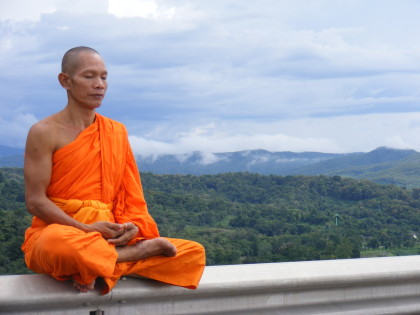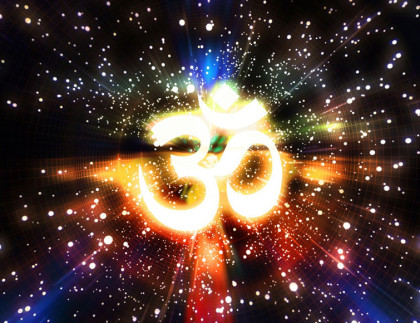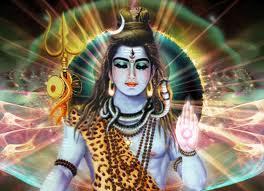Glossary – Teachings of Great Sages and Gurus of India

-
Sadhak
~~~ One who is engaged in spiritual practices. A spiritual seeker who practises meditation, austerities, worship etc. for spiritual advancement and self-improvement. -
Sadhana
Practice -
Sage
One who has attained Perfect Wisdom. An Enlightened, Self-Realized Being. -
Salvation
In spirituality, it is the Liberation from Bondage caused by the illusory ego that one is limited and attached to the body, mind, intellect, desires, world etc. and realize that one is Unlimited Being. -
Samadhi
A state of intense concentration and perfect tranquility achieved through meditation. In Hindu yoga this is regarded as the final stage, at which union with the divine is reached.

-
Samsara
Saṃsāra (Sanskrit संसार) is the repeating cycle of birth, life and death (reincarnation) as well as one's actions and consequences in the past, present, and future in Hinduism. It refers to the bondage of the individual soul and the consequent miseries of the world. -
Sanatana Dharma
Sanatana Dharma is the Eternal Way of Life in India. In India, ancient Sages who researched within and discovered the Truths of one's Real Being, passed it on to their disciples, who in turn passed it on to others. There is really no such thing as "Hinduism". It is just a fusion of Indian Cultures and Traditions, with no Founder.


-
Sannyasin
A Mendicant; Ascetic; Monk; Hermit; Renunciate; one who has renounced the role of a householder and has turned his attention inward towards attaining Self-Realization. ~~~
-
Sanyasa
Life of a Monk; Renunciation; Giving up the life of a householder. -
Sarira
Body -
Sarvadhikari
~~~ Chief Manager, One who is in charge of everything in the organization.
-
Sastra
Shastra (शास्त्र) is a Sanskrit word that means "precept, rules, manual, compendium, book or treatise" in a general sense. It is typically used to mean Scriptural Teachings. -
Sat
Being; Existence; Truth; Reality
-
Sat-sang
'Sat' means Reality. 'Sanga" means association with. In the highest sense, Sat-Sanga is the association of the individual with the Immortal Reality which is of the nature of Being, Awareness and Bliss. In the worldly practical sense, it means associating with not only the Higher Power, but a Great Sage or Enlightened Being, or Wise Beings. -
Sattwa
Sattva is a state of mind in which the mind is steady, calm and peaceful. In Vedantic philosophy, it one of the three qualities of prakriti, or nature, which are passion (rajas) dullness or inertia (tamas) and goodness or purity (sattva).
-
Satvic
Satvic is meant to be "pure, essential, natural, vital, clean, wise, conscious energy-containing, true, honest and wise". The Satvic diet regiment places emphasis on seasonal foods, fruits, dairy products, nuts, seeds, oils, vegetables, legumes, whole grains, and non-meat based proteins. -
Self
Existence, Reality, without attributes. The emergence and disappearance of the world are like the spider producing a gossamer web and then withdrawing it. The spider here underlies all the three states - waking, dreaming, and sleep; such a spider in the person is called Atman (Self).
The same with reference to the world (which is considered to issue from the sun) is called Brahman (Supreme Spirit).

-
Self-Abnegation
Self abnegation is a person putting their needs and wants aside for the sake of others. An example of self abnegation is a mother giving the last of the food in the house to her hungry child. -
Self-Realization
Knowing the Real, ever-present Self; Knowledge that one is not the sheaths that cover the Self, but the Real Being. -
Siddha
An accomplished Yogi; a perfected Master; one who has attained spiritual enlightenment. Siddha may also refer to one who has attained siddhi's (paranormal capabilities). It is believed that Siva always abides at the top of the hill on its northern side in the form of an invisible Siddha. -
Siddhi
Attainment; special spiritual power -
Siva
~~~ Siva means "The Auspicious One". At the highest level, Shiva is regarded as limitless, transcendent, unchanging and formless. Siva is also worshipped with a form as a Deity of Hinduism. Lord Shiva
Lord Shiva -
Sivaratri
The night dedicated to the worship of Lord Siva. -
Sonagiri
Sonagiri literally means "Golden Mountain". It stands for the Holy Arunachala. -
Sravana
~~~ Sravana includes Listening to discourses and Reading the Scriptures and the Teachings of Sages and Gurus. Associating with the Wise Sages and learning about the practices and the qualifications needed to practice in order to gain Self-Realization. -
Sruti
Hindu Scriptures of India. It is also used to denote the Musical Key or Pitch in Music. -
Subhechcha
An earnest, noble desire ~~~
-
Sukshma
Subtle -
Sundara
Handsome man -
Sundari
Beautiful Lady -
Sushupti
One of the three states of existence. Sushupti is the Deep Sleep State. Swapna is the Dream State while Jagrat is the Waking State and Sushupti is the Deep Sleep State. -
Swapna
One of the three states of existence. Swapna is the Dream State while Jagrat is the Waking State and Sushupti is the Deep Sleep State. -
Swarupa
One's Real being; real nature







 Lord Shiva
Lord Shiva
